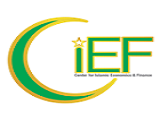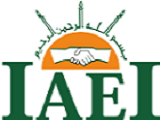INFLUENCE OF CONSUMERS KNOWLEDGE TO SHADAQAH PAYING DECISION AT BAITUL MAAL UNISBA
Abstract
Abstract- Shadaqah has a very important role to every human when we leave this world, therefore moslem community build a foundation to take care of their shadaqah from Muzaki. Unisba as an Islamic University, also have organization to collect, manage, and allocate funding from shadaqah, named Baitul Maal of Unisba. There are 419 lecturers and employees in Unisba but there are only 27% from them who decide to become muzzaki at Baitul Maal of Unisba. On average, the Collected Fund at Baitul Maal of Unisba per month is only as many as Rp 3.000.000,-. Researchers assumed that it caused by lack of consumers knowledge about Baitul Maal of Unisba programs. Consumers knowledge consists of attributes, benefit, and satisfaction to the products or services. A total of 30 questionnaires from offline surveys has been analysed using “several statistical analysis”, including multiple regression. Result of this research shows us that satisfaction to the products or services is the most dominant variable that influence lecturers and employees to become muzzzaki at Baitul Maal of Unisba.
Full Text:
PDFReferences
Askari, H. &Roshanak T. (2005). The Principle Foundations of An Islamic Economy.BancaNazionaledelLavora Quarterly Review, 58, 235.
Cristopher H.Lovelock dan Lauren K. Wright. (2002).Principles of Service Marketing And Management,Internasional Edition. New Jersey: Prentice Hall International Inc.
F. JamesEngel,Roger D. Blackwell, Paul W. Miniard. (1994). PerilakuKonsumen. Jakarta: BinarupaAksara.
Garcia, M.M. & Annabi H. (2002). Customer Knowledge Management. Journal of the Operational Research Society, 53, 8.
Gebert H., Geib M., Kolbe,L. & Brenner,W. (2003). Knowledge-enabled customer relationship management: Integrating customer relationship management and knowledge management concept. Journal of Knowledge Mangement, 7, 5.
Heikal, M., Muammar K., Falahuddin (2014). The Intention to Pay Zakat Commercial: An Application of Revised Theory of Planned Behavior. Journal of Economics and Behavioral Studies, 6, 9.
Huda, N., Nova R., Yosi M., Purnama P. (2012). The Analysis of Attitudes, Subjective Norms, and Behavioral Control on Muzakki’s Intention to Pay Zakah. International Journal of Business and Social Science, 3, 22.
John C Mowen dan Michael Minor. (2001). Consumer Behavior .6th edition.New Jersey : Prentice-Hall,Inc.
Philip Kotlerdan Kevin Lane Keller. (2012). 14th edition Marketing Management. New Jersey: Prentice Hall International.,Inc.
Philip Kotlerdan Garry A. (2001). Principles of Marketing. New Jersey:Prentice Hall International, Inc.
Prue, B., Stern, L.D., Hurley P., Catto G., Young D., & Pfautz J. (2015). Application of Personality Theories for The Design and Development of Cross-cultural Decision-making Tools.6th International Conference on Applied Human Factors and Ergonomics (AHFE 2015) and the Affiliated Conferences, AHFE 2015.
Rowley, J. (2002). Eight questions for customer knowledge management in e-business Journal of Knowledge Management. 6, 5.
Samad, A. & Lowell M. G. (2010). Development of Zakah and Zakah Coverage in Monotheistic Faiths. International Journal of Social Economics, 37, 4.
Syafei, Z. (2015). Public Trust of Zakat Management in the Office of Religious Affairs, Cipocok Jaya, Serang, Banten, Indonesia. Journal of Management and Sustainability, 5, 3.
Uotila, V. (2011). Customer Knowledge Utilization In Retail Decision-Making. Aalto University School of Economics
Yeung, A.H.W., Lo,V.H.Y., Yeung,A.C.L., & Cheng, T.C.E. (2008). Specific customer knowledge and operational performance in apparel manufacturing. Internatio-nal Journal of Production Economics, 114.
You Z., Si Y.W., Zhang D., Zeng X.X., Leung., S.C.H., & Li. T. (2014). A Decision-Making Framework for Precision Marketing. Expert Systems with Applications.
DOI: http://dx.doi.org/10.24042/febi.v1i2.146
Refbacks
- There are currently no refbacks.
Copyright (c) 2017 IKONOMIKA
Ikonomika : Jurnal Ekonomi dan Bisnis Islam is a Journal of Islamic Economics and Business, Published by the Faculty of Islamic Economics and Business at UIN Raden Intan Lampung Indonesia. This work is licensed under a Creative Commons Attribution-ShareAlike 4.0 International License.






11.png)


